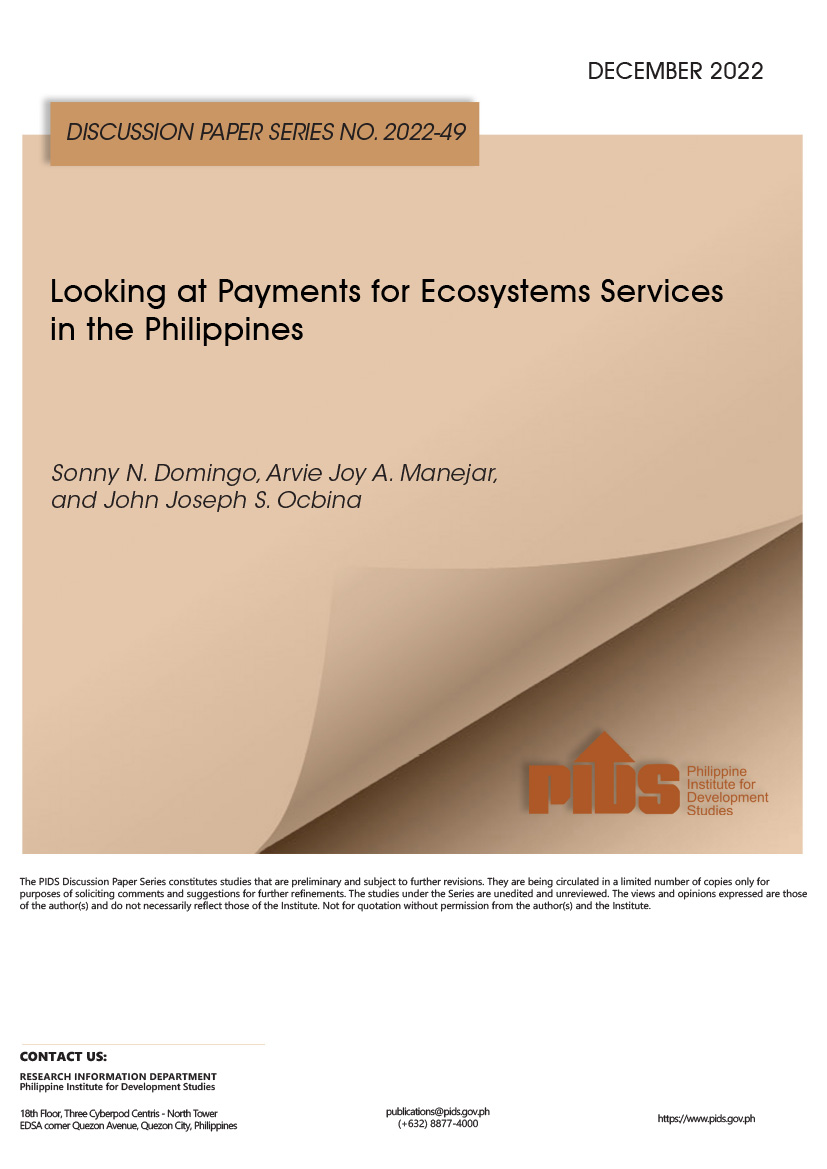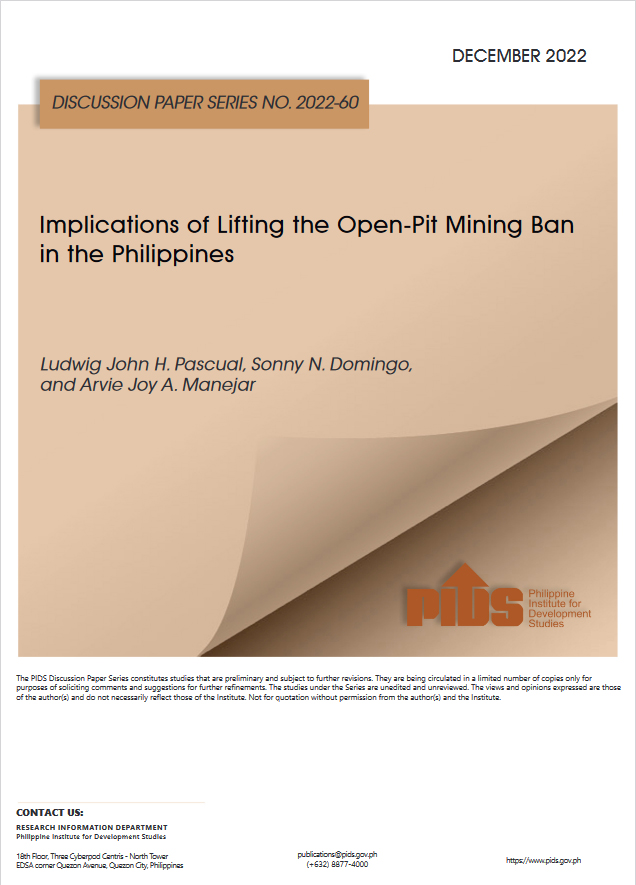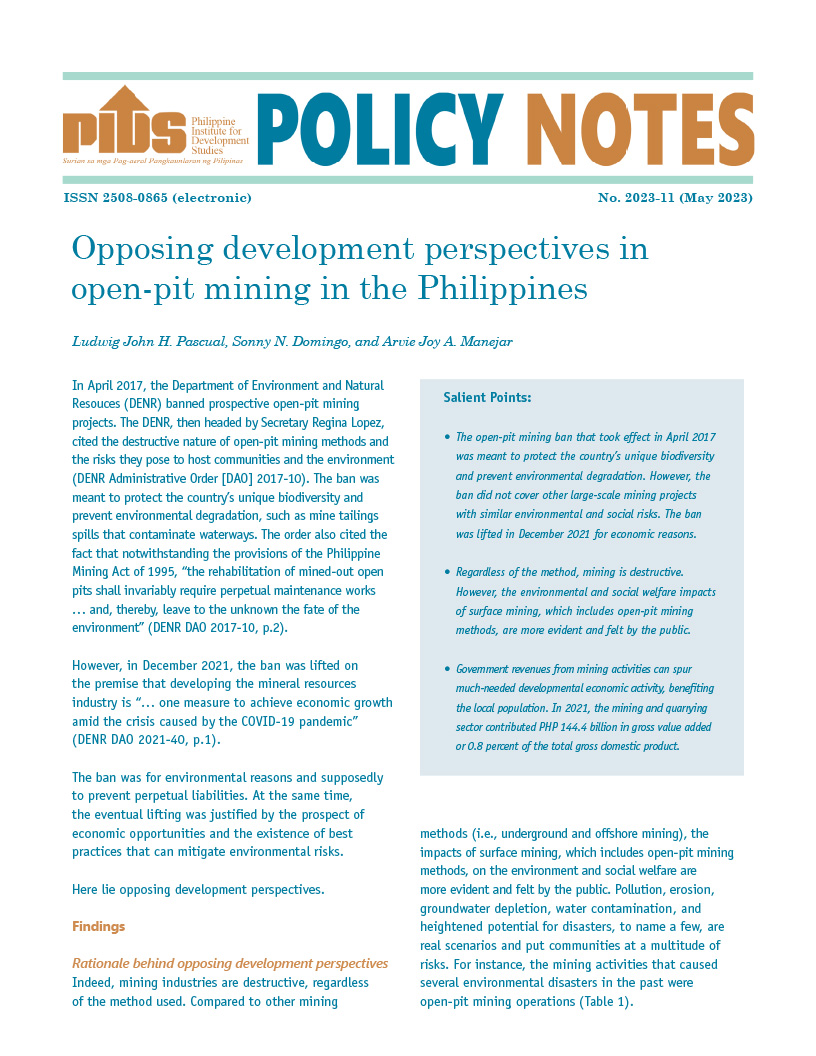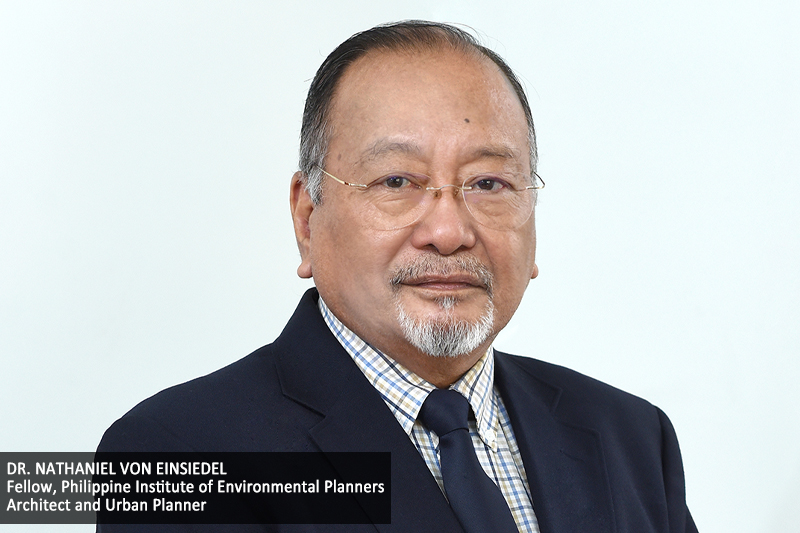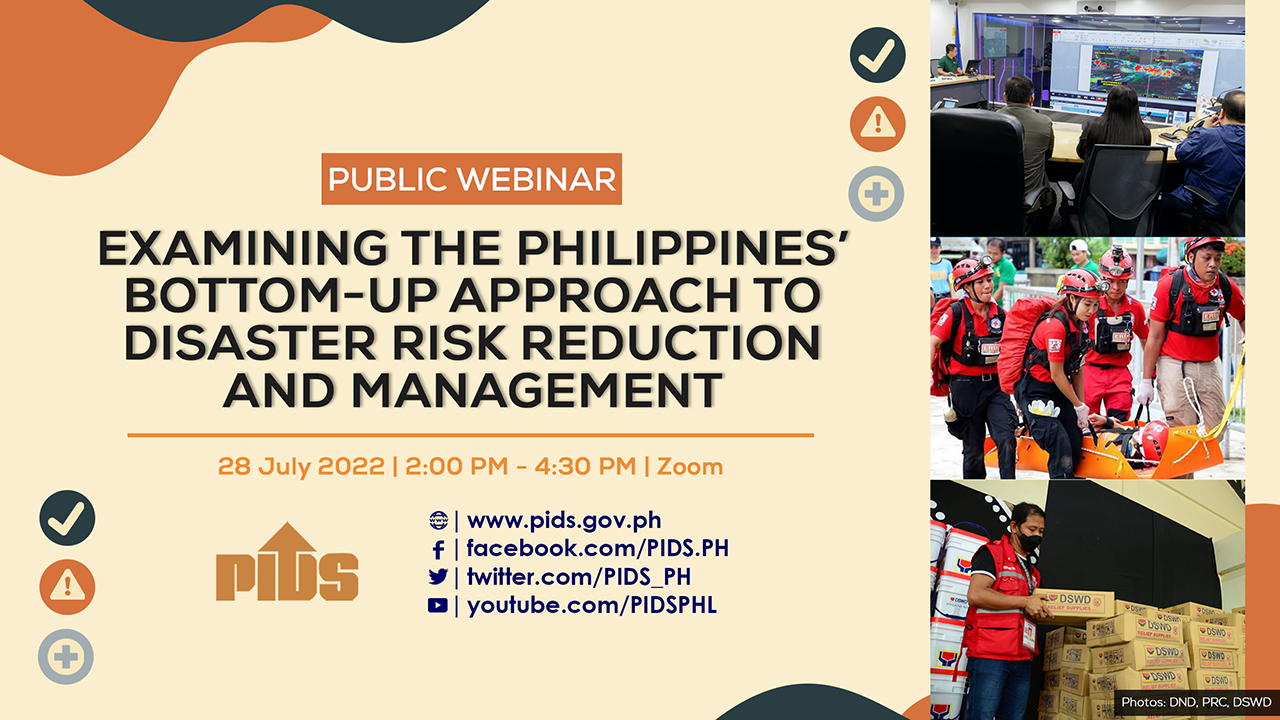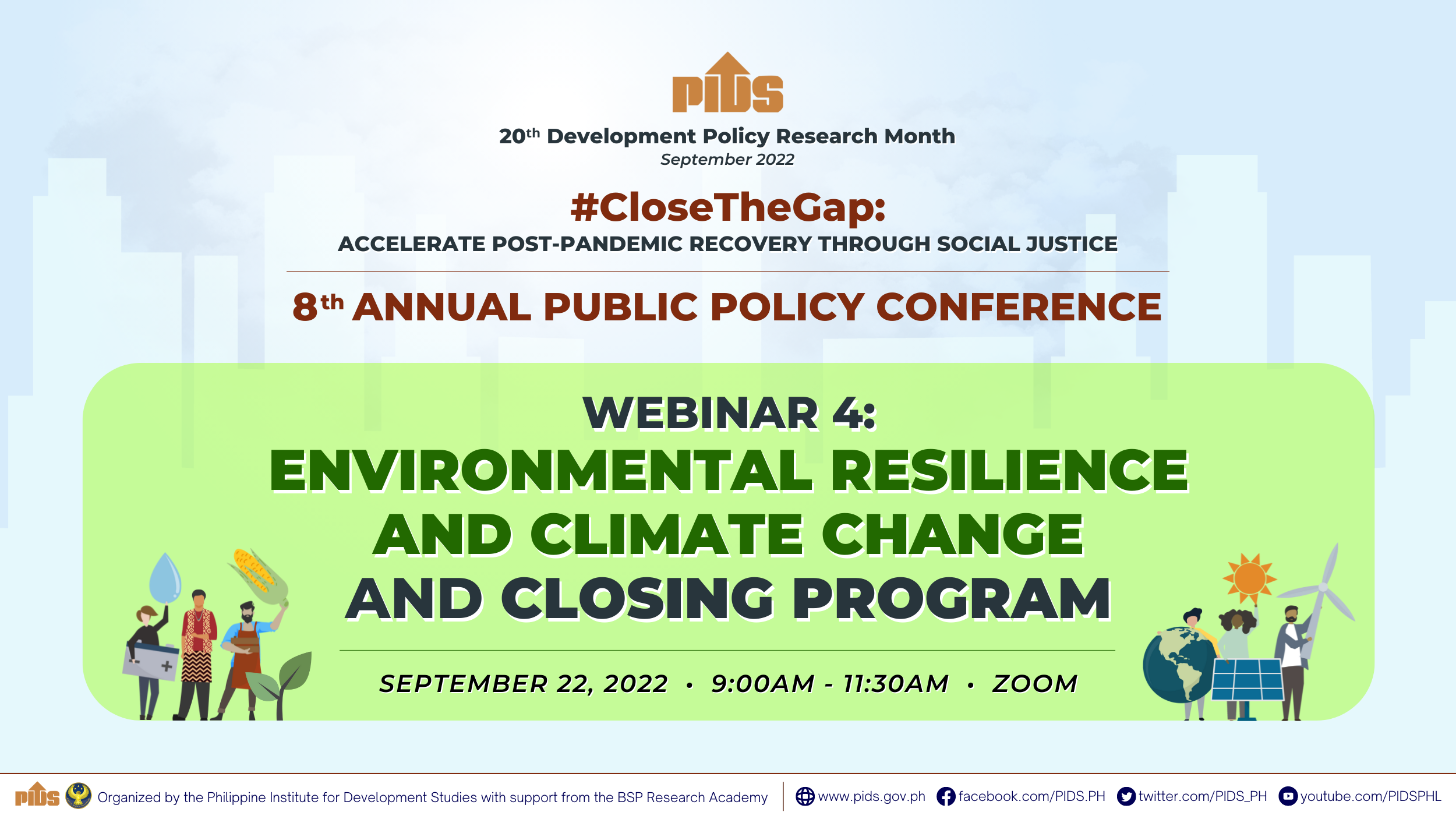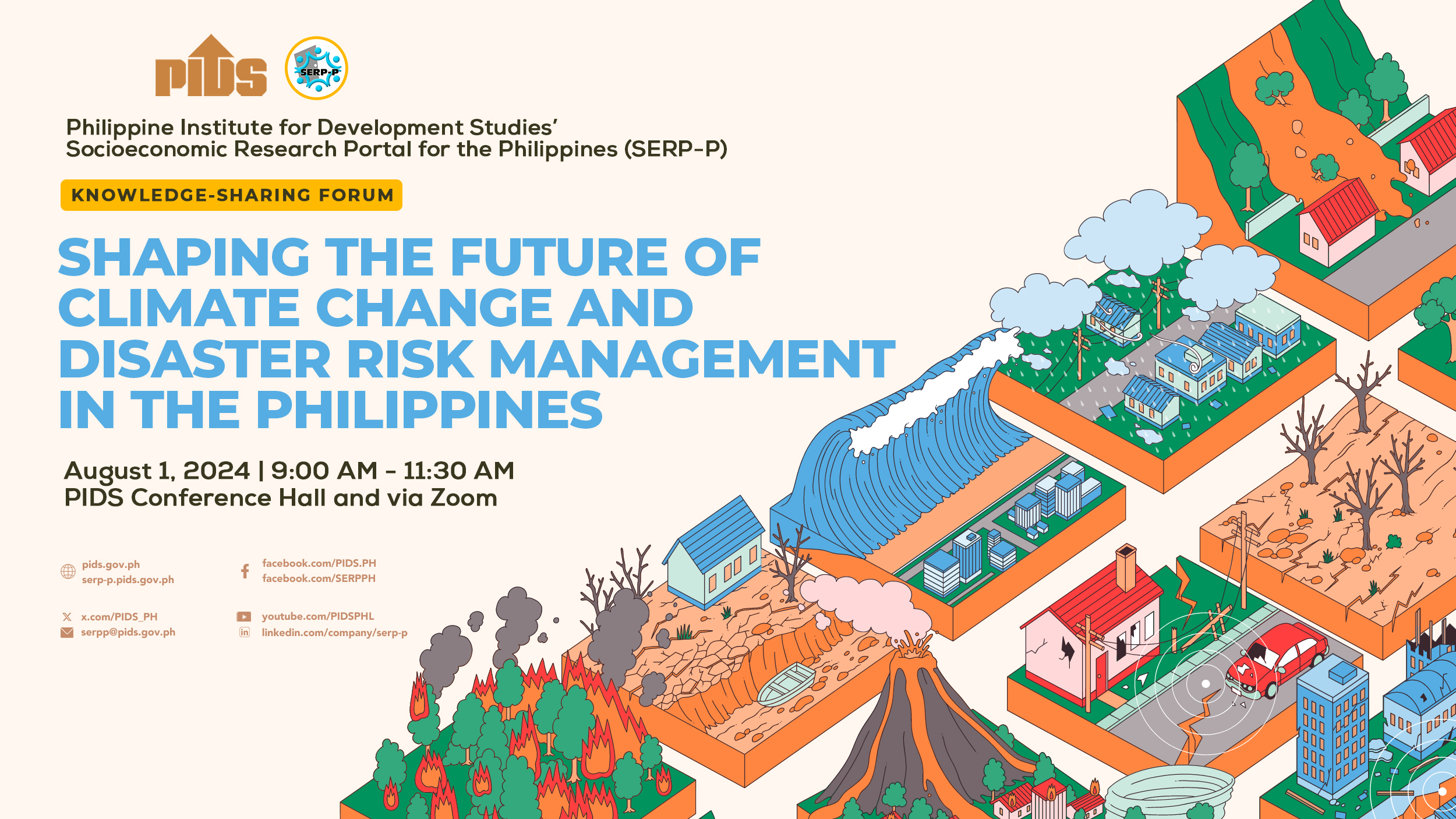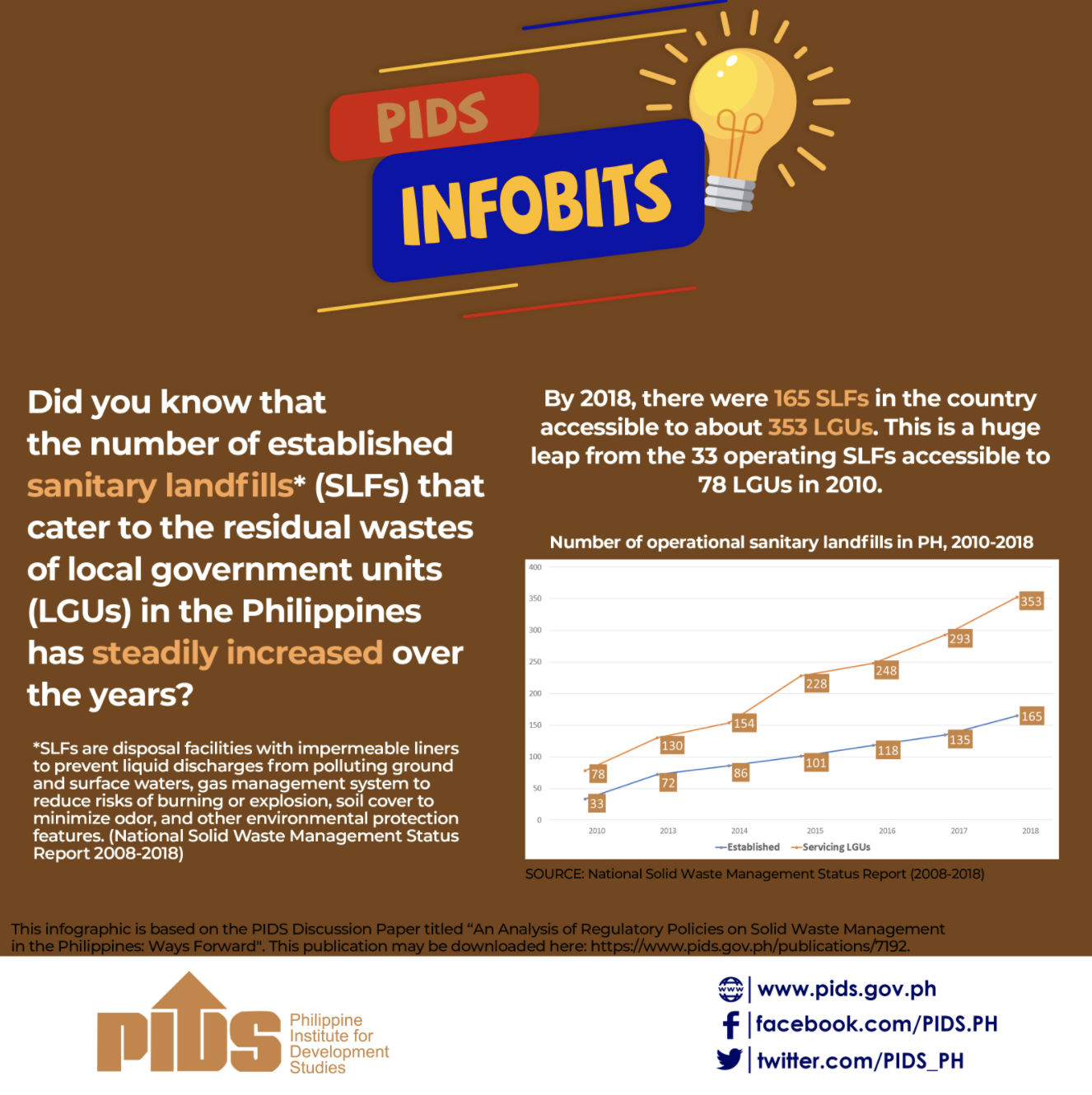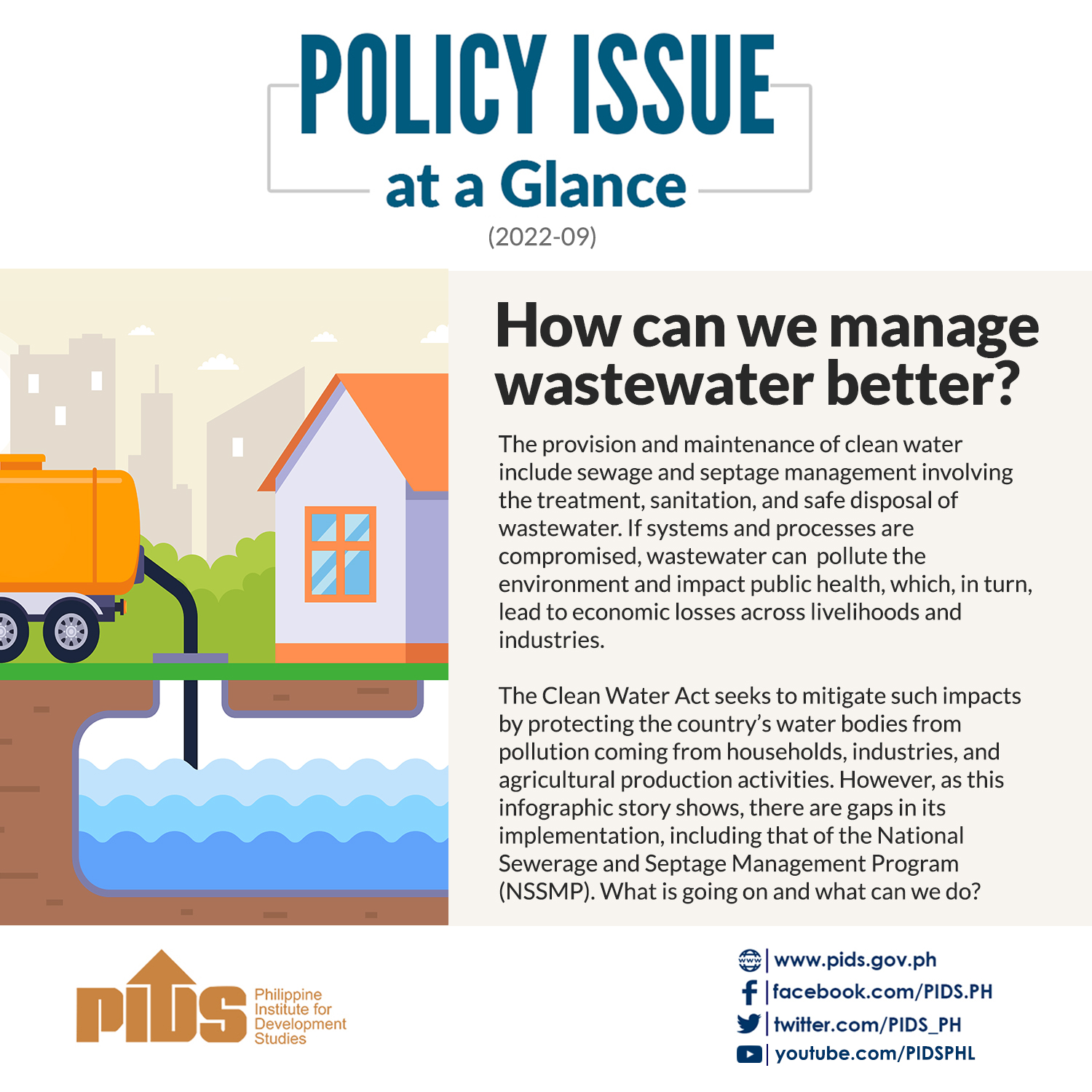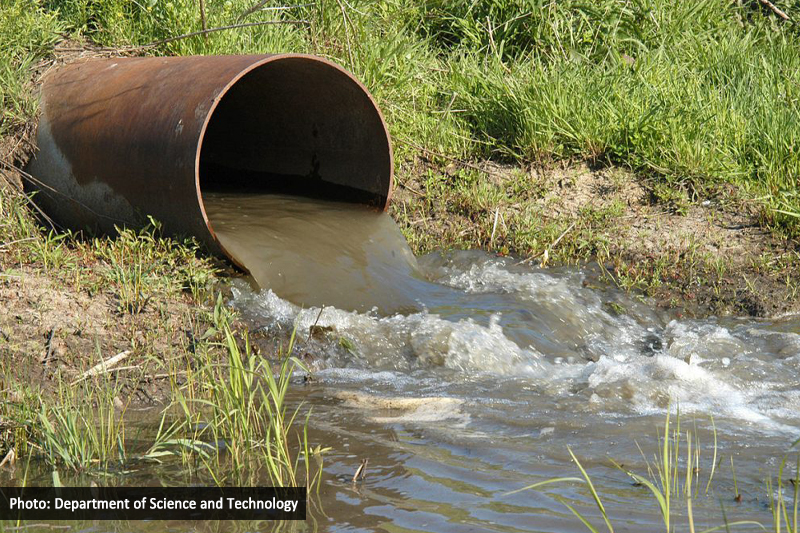
The country’s wastewater management faces institutional and implementation fragmentation issues, according to a recent study by state think tank Philippine Institute for Development Studies (PIDS).
According to PIDS Senior Research Fellow Sonny Domingo and PIDS Research Specialist Arvie Joy Manejar, while government agencies have been given mandates in water supply, quality, servicing, and wastewater, “overarching framework and direction were absent.”
The authors noted that the Philippine Clean Water Act of 2004 designated the Department of Environment and Natural Resources as the oversight agency for implementing water quality guidelines, effluent standards, and environmental regulatory compliance. However, it “did not consolidate mandates of institutions across specific aspects on sanitation”.
“Broad provisions, albeit encompassing in their scope, induced mandate overlaps, resulting in disaggregated efforts in the sector,” the authors pointed out.
Moreover, the “lack of national guidance” contributed to the fragmentation in the sector, particularly the absence of a national plan and roadmap.
“Without a cohesive direction, most burdens fell on local implementers, while investment became highly dependent on private sector extension,” the authors explained.
The study also raised the concern about unfeasible regulatory standards imposed by the government on concessionaires and implementers, noting that they are unable to comply “given the state of facilities, the amount of investment needed, and the limited technology options”.
The lack of regulatory offices also poses a problem. For instance, the National Water Resources Board, which manages the water quality management areas and watersheds, has no regional offices and thus, “has no capacity to go after polluters of primary water sources”.
To harmonize the country’s fragmented approach to water and wastewater management, the authors said the Philippines could learn from its neighboring countries. In Singapore, its Public Utilities Board handles the oversight and integrates the management of the country’s water supply, research and development, and collaborations with domestic and international experts.
“Singapore’s approach encompasses the full water management cycle, unlike in the Philippines where water supply and wastewater management and sanitation are treated differently,” the authors said.
They also emphasized the importance of having an “empowered regulatory body”. In addition, a well-crafted master plan should be present to “inform the direction and strategic approach in water supply and wastewater management both at the national and subnational levels”.
Moreover, the authors recommended the review of available technology and facilities before implementing standards and guidelines.
“Unless funded, assisted with grants or loans, or funneled with an investment, the urgency of implementation should consider the feasibility,” they said.
Finally, the authors suggested ramping up investments in the water sector. Current proposed investments amount to PHP 1.07 trillion for physical requirements and PHP 1.13 billion for nonphysical needs.
While the figures are “huge”, the authors said these are “still massive underestimates of what is truly required down the line”. ###
This press release is based on the PIDS discussion paper “Review of Urban Wastewater Management and Clean Water Act”.

